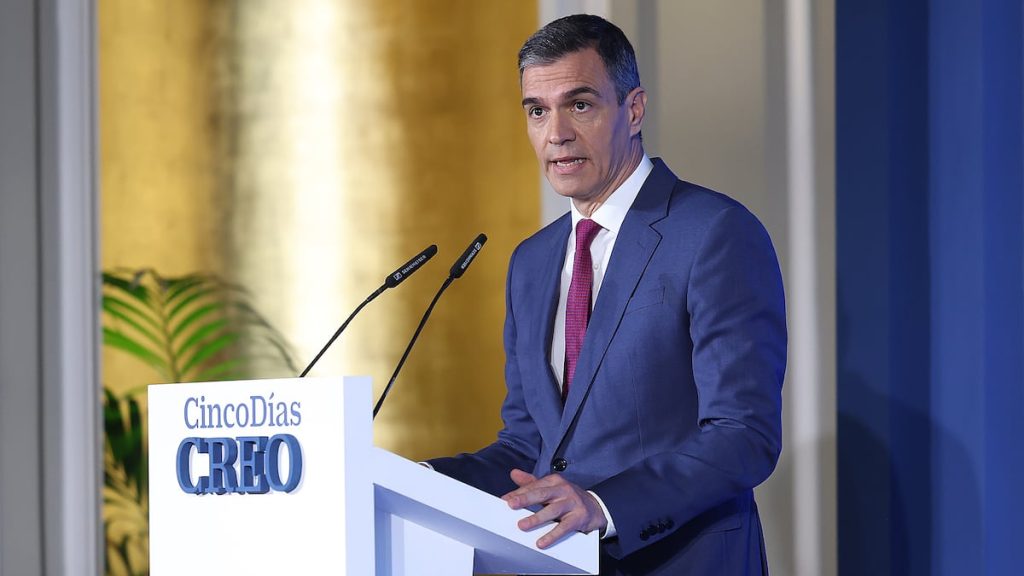The Spanish political scene is currently in a state of permanent campaigning, with three elections taking place in three months. The parliamentary debate on Wednesday will mark the beginning of the European campaign for all parties, particularly for the Government and the opposition. Both Pedro Sánchez and Alberto Núñez Feijóo will play significant roles in the European campaign, even though they are not the candidates. This debate will resemble a pre-election face-off between the two main leaders, who have a lot at stake in the upcoming elections, the first in which all Spaniards can vote since the July 2023 elections.
Pedro Sánchez, who set the date and controls the agenda of the topics, has carefully prepared this debate to kick off the European campaign and to shift the focus to international politics, where he feels more comfortable in his clashes with the PP. Sánchez will announce today the day on which Spain will recognize the State of Palestine, pushing the debate in that direction to force the PP to take a stance on a topic that is uncomfortable for Alberto Núñez Feijóo. Feijóo supports the recognition of Palestine, being the historical position of the PP, but believes that it is not the opportune moment. Sánchez believes he has an advantage in international debates, as his positions have strong support among the public and polls indicate he is stronger in this field than his rival.
Sánchez will try to push the PP towards Vox and frame the discussion over the coming days around the idea that the Spanish right and much of the European right are opening the door to the far-right. He will seize on the conflict with Argentine politician Javier Milei to try and force Feijóo to support him against the attack from a foreign leader. Feijóo, on the other hand, will try to position Sánchez and Vox as two poles that feed off each other, although he will have to address the discomfort caused by Milei’s visit to a Vox rally. The PP and Vox will likely attempt to steer the debate towards national politics, with the PSOE believing that the results of the Catalan elections have weakened criticism of the amnesty law.
The opposition, however, still sees potential in the ongoing investigation into the business activities of Pedro Sánchez’s wife for possible influence peddling. Sánchez is prepared to provide explanations on this matter for the first time in parliament, backed by a detailed report from the Guardia Civil that found no evidence of influence peddling. The Moncloa is confident that the case will be closed, as the prosecutor and investigators see no grounds for charges. Nonetheless, the opposition intends to exploit this issue, as they believe it weakens the Government. This debate will be crucial in shaping the current political situation in Spain, following the Catalan elections that benefitted both the Government and the PP, and just before the European elections, the final opportunity for the opposition to strike against the Government until a period without elections.
In conclusion, the Spanish political landscape is currently focused on the upcoming European elections, with the parliamentary debate serving as a crucial moment before the campaign begins in earnest. Pedro Sánchez and Alberto Núñez Feijóo will play leading roles in the campaign, as the two main leaders with a lot at stake in the upcoming elections. Sánchez is looking to shift the debate towards international politics, where he feels more comfortable, while Feijóo will try to position himself as a counterbalance to Sánchez’s agenda. The opposition will likely focus on national issues such as the ongoing investigation into influence peddling allegations against Sánchez’s wife. This parliamentary debate will set the stage for the European elections and will be crucial in shaping the political landscape in Spain in the coming months.


